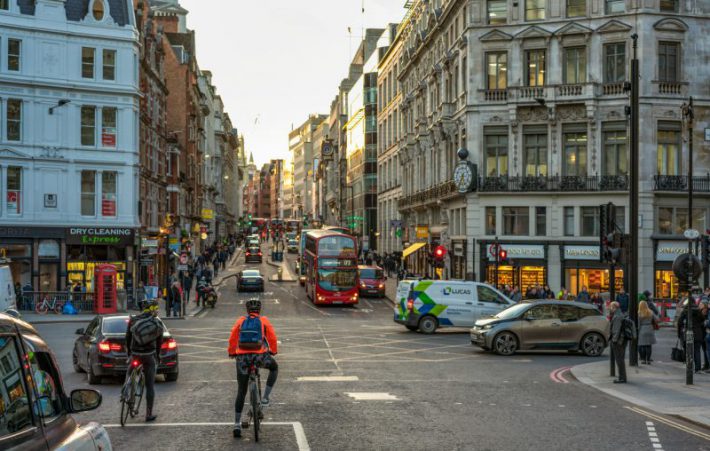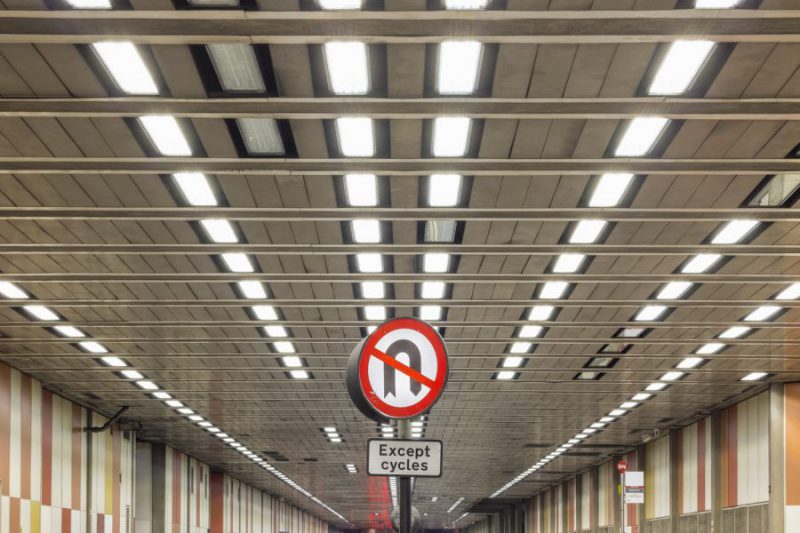
Drivers are likely to face even tougher traffic enforcement from December onwards. Under new plans any council in England and Wales will be able to fine drivers for traffic offences. That means up to 300 councils will be able to apply to take over traffic enforcement. Read on to find out how this will hit drivers.
What sort of traffic offences will be penalised?
Police currently enforce moving traffic offences such as illegal turns, drivers blocking box junctions, driving the wrong way up one-way streets, entering and waiting in a pedestrian zone and driving in bus or cycle lanes. But in London and Cardiff, enforcement is in the hands of the local authorities. They use Automatic Number Plate Recognition (ANPR) cameras to monitor their streets. Fines are given to drivers who break the rules.
How much will the fines be?
Registered keepers of cars will receive a penalty charge notice (PCN) in the post. Fines will probably be £70. As with parking fines, if they pay promptly drivers are likely to benefit from a 50 per cent discount.
Will drivers be able to appeal PCNs?
Drivers have 28 days to appeal a PCN. If their challenge is accepted, they won’t have to pay the fine. If the council rejects their appeal they will still be able to apply to an independent body such as the Traffic Penalty Tribunal.
Will all councils do this?
No. Confusingly, for drivers, the change in law allows local authorities to apply for the ability to penalise drivers for moving traffic offences on their patch. But they will have to publicise it if they do take over policing traffic in this way.
Under secretary of state at the Department for Transport Baroness Vere said: “To ensure this change is fair, we will publish guidance for local authorities, so they can make drivers aware that enforcement is being undertaken.”

How much money will they raise?
Indications suggest a lot. In the most recent year (2018/19), London and Cardiff took a total of £58.2 million from drivers for moving traffic offences.
When will this happen?
Local authorities will be able to apply to take over enforcement from December. But of course they must then put in infrastructure such as cameras and signposting. That means the first councils are unlikely to start enforcing these moving traffic offences until early 2022.
Why has this come about?
Transport spokesperson for the Local Government Association David Renard said: “Councils have been calling for powers to make our roads safer and less congested for all road users.”
The government believes this move will help reduce the workload for hard-pressed police officers. And it wants to help councils to improve air quality and encourage drivers out of their cars.
Baroness Vere added: “Local authorities will need the tools to manage roads in the way that best serves local needs, which may vary in different parts of the country. It is this ethos of localism that lies behind our decision to give more powers to local authorities under the Traffic Management Act.”
Yet another handing over of crime matters to non-police personnel. And another way for councils to boost their income. Along with blurring the line between law breaking and rule breaking. Well done, our incompetent government. What next? Council workers stopping people not wearing seatbelts? While here in Bournemouth, the new BCP Council thinks it all right for anyone of any age to ride electric scooters on roads, pavements, promenades. At least those using them on the roads have a god chance of being run over by law abiding motorists.
The Derby City Council cannot collect waste bins when due (staffing problems), but I am sure they will be able to find staff to fine motorists as this will bring in income.
It’s time for the public using roads paid for by motorised vehicles,had to have insurance and pass a test to show they are old enough.?
Discharge of responsibility to robots and tinkers of society. Apply the same controls to our MPs activities!
Should cyclists stop in front or behind the white line on a red light?
Another back door taxation….!
I can see the benefit for councils in this, and for the police. However cyclists are using the pavement, which is illegal and now the e scooters too. This needs sorting out urgently first!
I have had a number of near misses coming out of my driveway. Cyclists ride too fast, one had a toddler on the back!. It is dangerous in an area where there are homes.
The council could address this issue but doesn’t and won’t until there is a serious accident!
I don’t agree with Mr Hayman’s comments regarding councils boosting their income. If drivers complied with the traffic laws there would not be any fines to collect. On the matter of electric scooters he absolutely correct, councils should indeed be fining people who illegally use motorised scooters on pavements and other public places. it is illegal. what’s good for the goose is good for the gander as the saying goes.
Drivers as tax cows again. A society where you pay more and get less from your council. How else can you pay for commissioner’s, Mayors and top council officials. If the fines went back into maintaining the roads and filling in pot holes which we are always told they do, then I might have some faith in the propaganda of it is all about road safety.
very good
Hopefully Councils will channel profits into road maintenance like eradicating pot holes! I had 3 tyres damaged on one road.
When are they going to make it illegal for people to park on the pavement? Pavements are for pedestrians but you would never think so where I live.
I’m beginning to detest Government for granting so many legal and discriminatory powers to counsels to use against the motorist. And they, a British parliament had criminally surrendered our sovereign nation to treason in the EU for 47 years, and not one of them tried and hung for high treason!?
I will never vote again.
Drive carefully and within the Highway Code and we should have no worries.